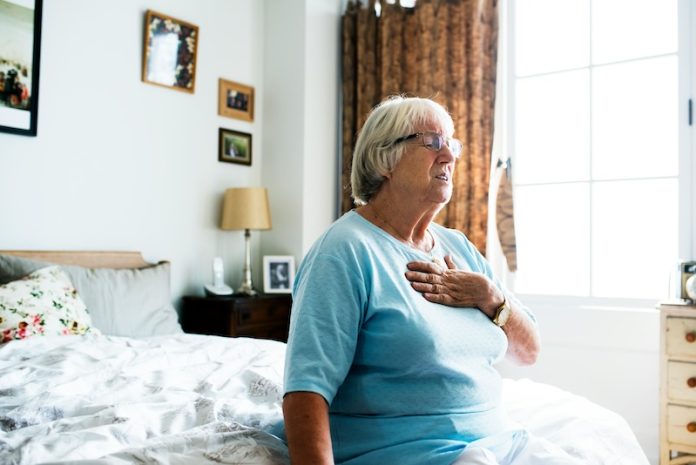
A new study has found that women are less comfortable calling emergency services (000) when experiencing heart attack symptoms, which may contribute to worse outcomes compared to men.
Researchers from Monash Universityanalyzed data from over 34,000 Australians and found that although more women than men said they would call 000 (70.4% vs. 62.7%), they were less comfortable making the call (69.1% of women vs. 76.7% of men).
The study, led by Honours student Annie Shi, Associate Professor Kathryn Eastwood, and Professor Janet Bray, was published in the Emergency Medicine Journal.
It examined why people delay calling emergency services when they think they might be having a heart attack.
Key reasons women hesitate to call 000 include:
- Fear of being a burden on the ambulance service – Over one-third of women worried about this, compared to only one-quarter of men.
- Wanting to be certain it’s a heart attack – Many women preferred to contact their GP first rather than risk calling an ambulance unnecessarily.
- Believing they are at low risk of a heart attack – This misconception may cause delays in seeking emergency care.
Delayed Medical Attention Leads to Worse Outcomes
Calling 000 is critical in a heart attack because paramedics can diagnose the condition early, start treatment, and reduce the risk of fatal complications. Faster treatment also means a shorter hospital stay and better recovery chances.
However, research has consistently shown that women wait longer than men to seek medical attention and experience longer delays in diagnosis once they reach the hospital.
One reason for this delay is that women’s heart attack symptoms tend to be more subtle than men’s. This can lead to misinterpretation by both women themselves and healthcare professionals, increasing the chances of a missed or delayed diagnosis.
Who Is Less Likely to Call 000?
The study also identified factors that make people of both sexes less willing to call emergency services:
- Not speaking English as a primary language
- Having existing cardiovascular risk factors
- Poor knowledge of heart attack symptoms
- Living in the Northern Territory
- Not having clear health insurance coverage for emergency calls
Associate Professor Eastwood emphasized the need for better public education on recognizing heart attack symptoms and the importance of calling 000 immediately. She found it alarming that, even when people believed they were having a heart attack, one-third still said they would not call emergency services.
She offered simple advice to patients who were unsure about calling 000: “Call first, decide later.”
This study highlights an opportunity to educate specific groups—especially women—about the importance of seeking emergency medical help early to improve heart attack survival rates and outcomes.
If you care about heart disease, please read studies that herbal supplements could harm your heart rhythm, and how eating eggs can help reduce heart disease risk.
For more health information, please see recent studies that apple juice could benefit your heart health, and results showing yogurt may help lower the death risks in heart disease.
The research findings can be found in Emergency Medicine Journal.
Copyright © 2025 Knowridge Science Report. All rights reserved.



